
/
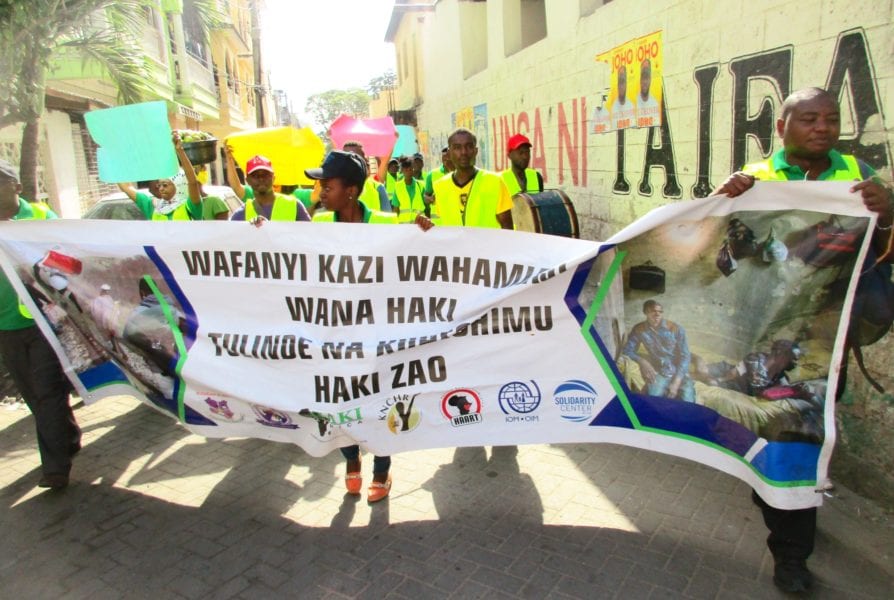
The Solidarity Center workers with partners like those in Kenya to end labor trafficking of migrant workers. Credit: Solidarity Center/Caroline Kasina
The Solidarity Center advocates an approach to combating human trafficking that puts worker rights at the forefront of solutions and calls for the labor movement to be involved.
Trafficking for forced labor results from the absence of human rights and effective governance. It often occurs in countries that restrict civic freedoms, have weak rule of law and prevent the exercise of the right to freedom of speech, assembly and association—including the right to form or join a trade union to represent their interests.
Trafficking for forced labor also thrives in un- or under-regulated supply chains and so combating trafficking must begin with empowered workers who can stand up to exploitation when it occurs.
Migrant workers are especially targets of human trafficking and forced labor. Corrupt labor brokers lie about the wages and working conditions workers should expect in a destination country and charge such huge fees for securing work that migrant workers cannot repay them even after years on the job, forcing them to remain in dangerous working conditions because their debt is too great. Employers use work visas and threats of deportation to exploit workers for forced labor.
With migrant workers, trade unions, human rights NGOs, governments and civil society coalitions around the globe, the Solidarity Center raises awareness about the causes and the extent of trafficking for forced labor and implements programs with our partners worldwide to combat this scourge. These programs address each of the four “Ps” that are part of the anti-trafficking toolkit: prevention, protection of victims, prosecution (access to justice) and partnerships. Solidarity Center programs recognize that we cannot eliminate forced labor without fundamentally changing how labor migration is managed around the world, how companies do business and how governments monitor and enforce human and labor rights.

The Cotton Campaign—a global coalition of human rights, labor, responsible investor and business organizations—yesterday ended its call for a global boycott of Uzbek cotton at an event hosted by the country’s Ministry of Labor for media, activists and government...
A study conducted by Insan-Leilek, a Kyrgyz migrant worker foundation, and the Trade Union of Migrants of the Kyrgyz Republic documents abuses suffered by many who migrate to Russia to earn their livelihoods as nannies, adult caregivers, cooks, cleaners and live-in...
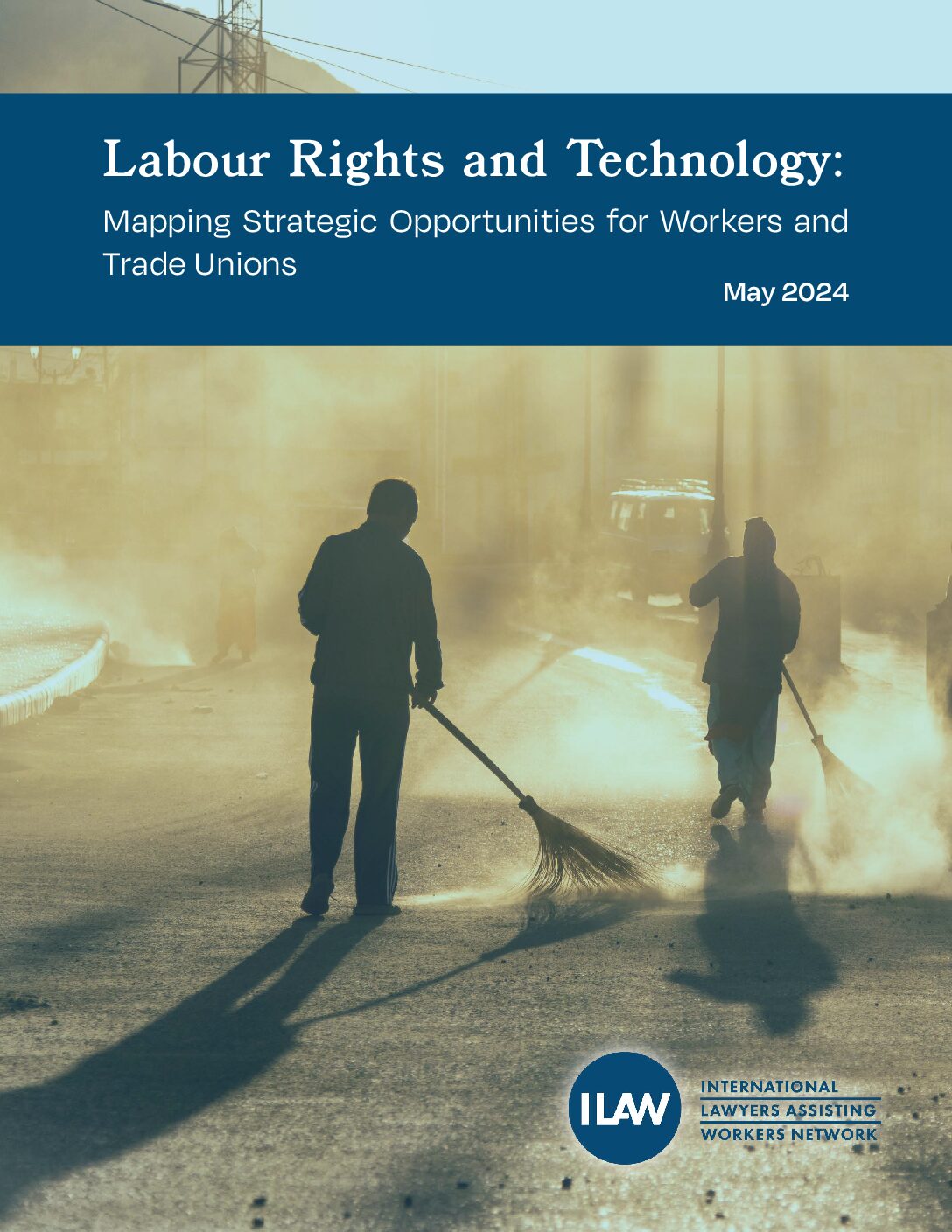
This ILAW Network issue brief, researched and drafted by Dr. Barbora Černušáková, maps some of the legal initiatives and strategies undertaken by workers and unions, and outlines opportunities for workers to challenge breaches of technology-driven labor rights through...
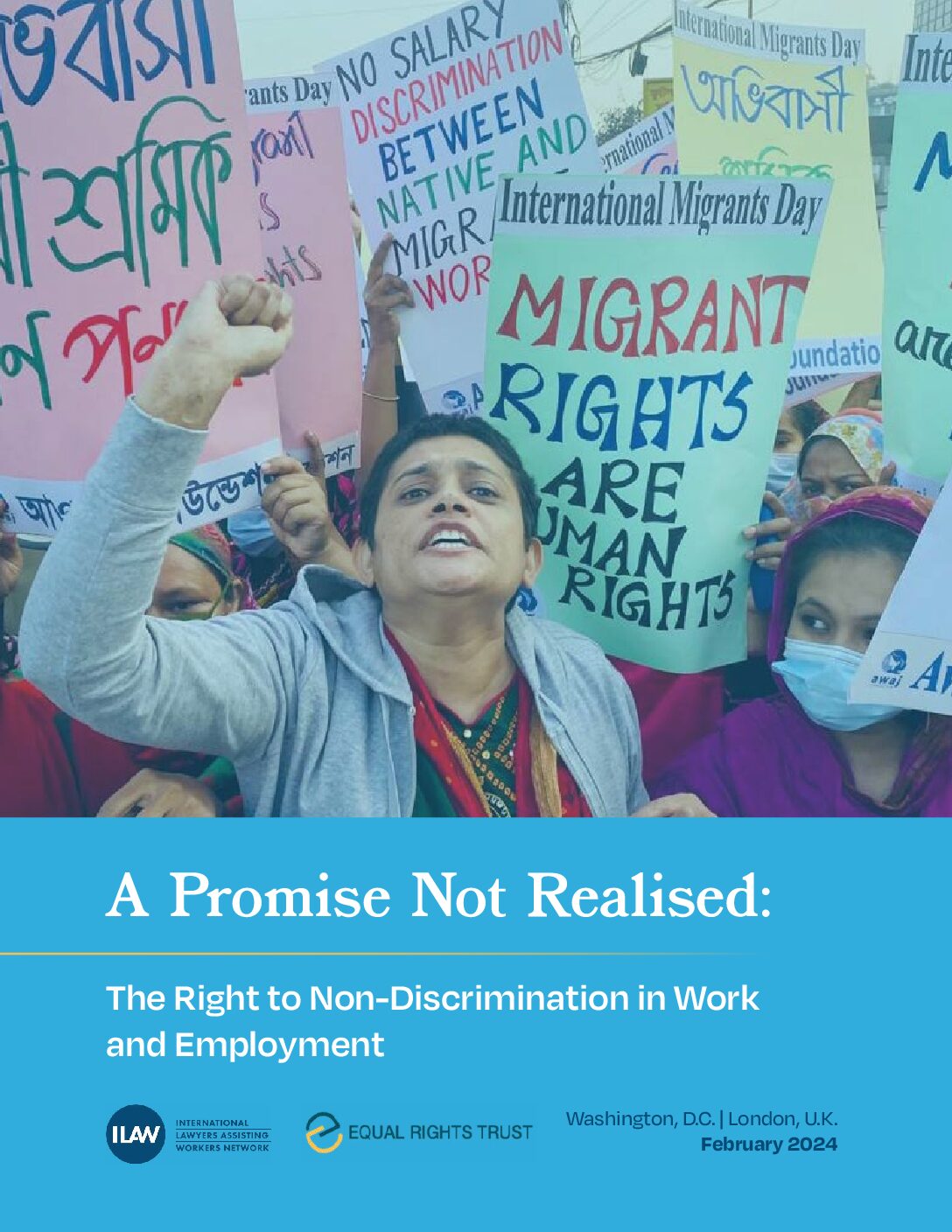
The ILAW Network is pleased to present our new report, A Promised Not Realised: The Right to Non-Discrimination in Work and Employment – a collaboration of the ILAW Network and Equal Rights Trust (ERT). This issue brief focuses on two main questions: (1) why does...
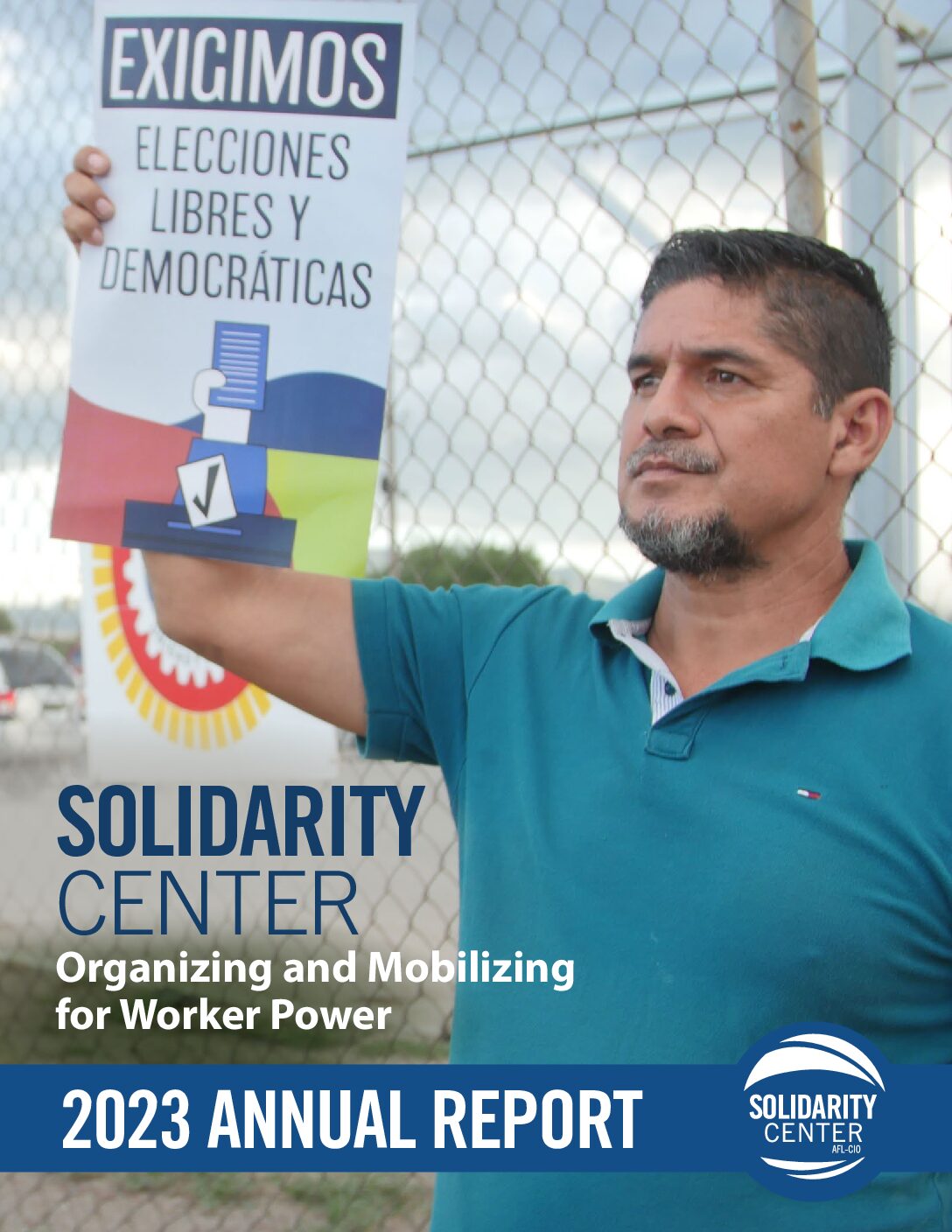
In 2023, the Solidarity Center supported workers as they took on exploitative multinational companies and robot algorithms, demanded their governments tackle social ills and deliver on promises, and fought for justice in environments increasingly dangerous to those...
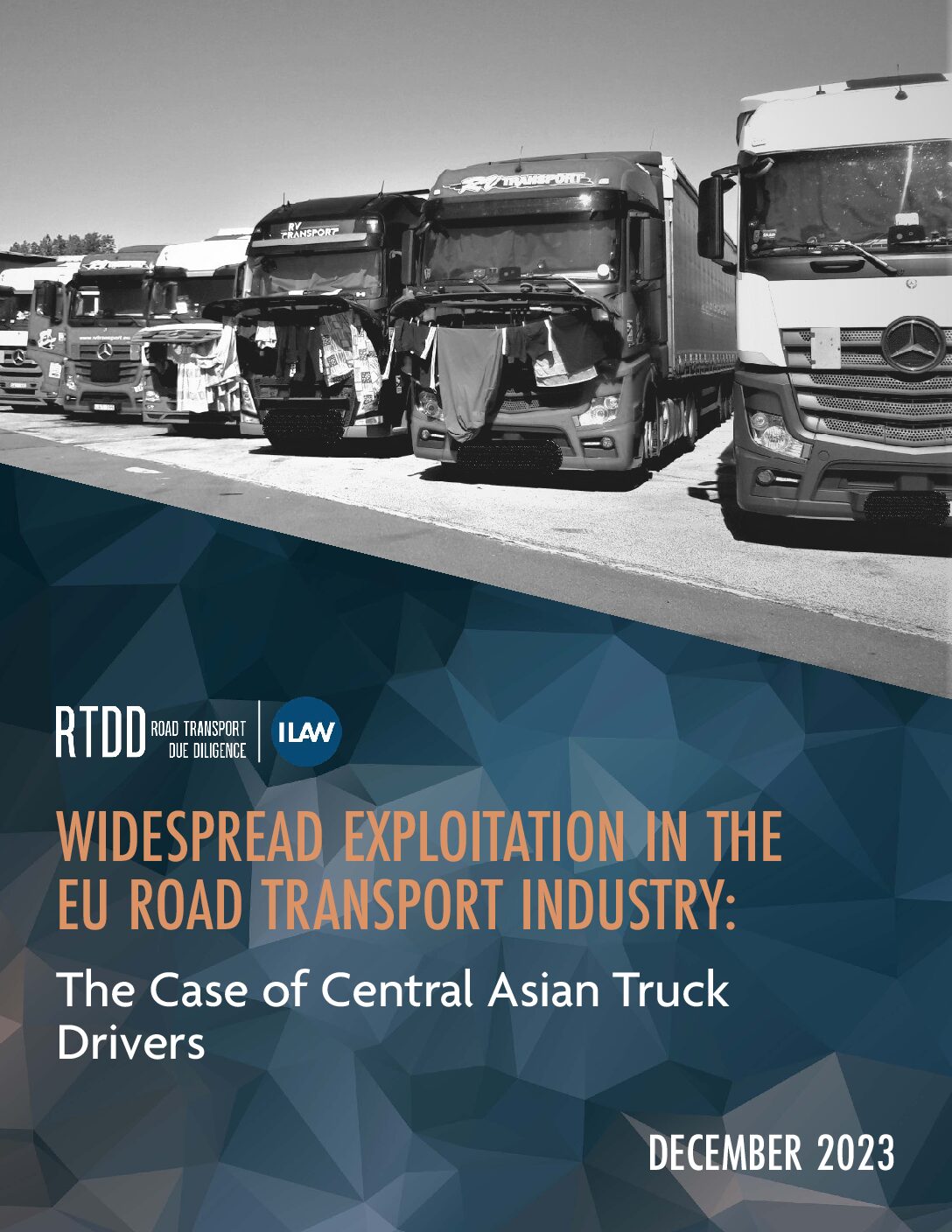
The ILAW Network is pleased to present our new report, Widespread Exploitation in the EU Road Transport Industry: The Case of Central Asian Truck Drivers, written by Imke van Gardingen and Edwin Atema of Road Transport Due Diligence (RTDD). This research was supported...
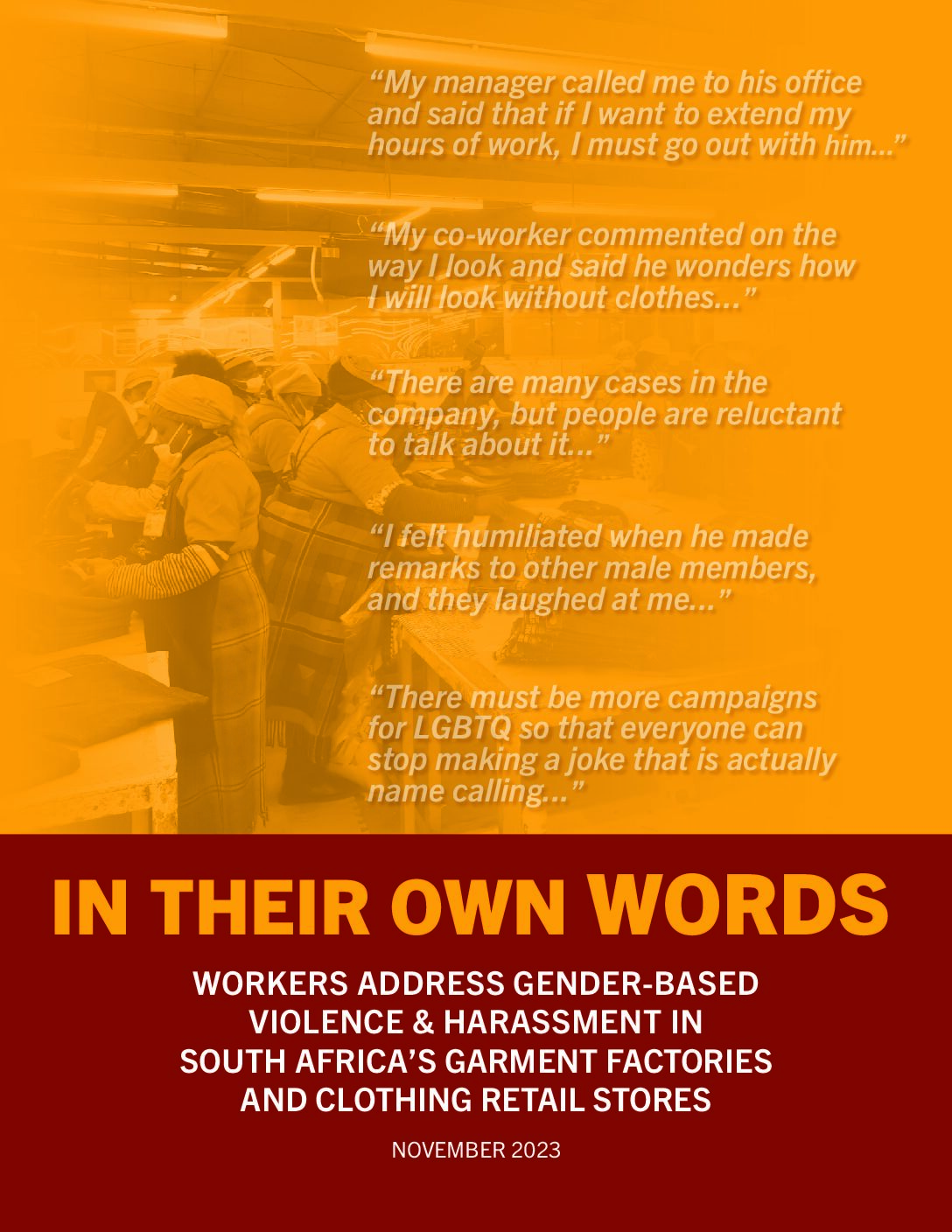
In South Africa, 98 percent of women garment and retail workers surveyed in 2022 said they had experienced one or more forms of gender-based violence or harassment, including physical abuse, unwanted sexual advances, psychological abuse, bullying and rape. To better...
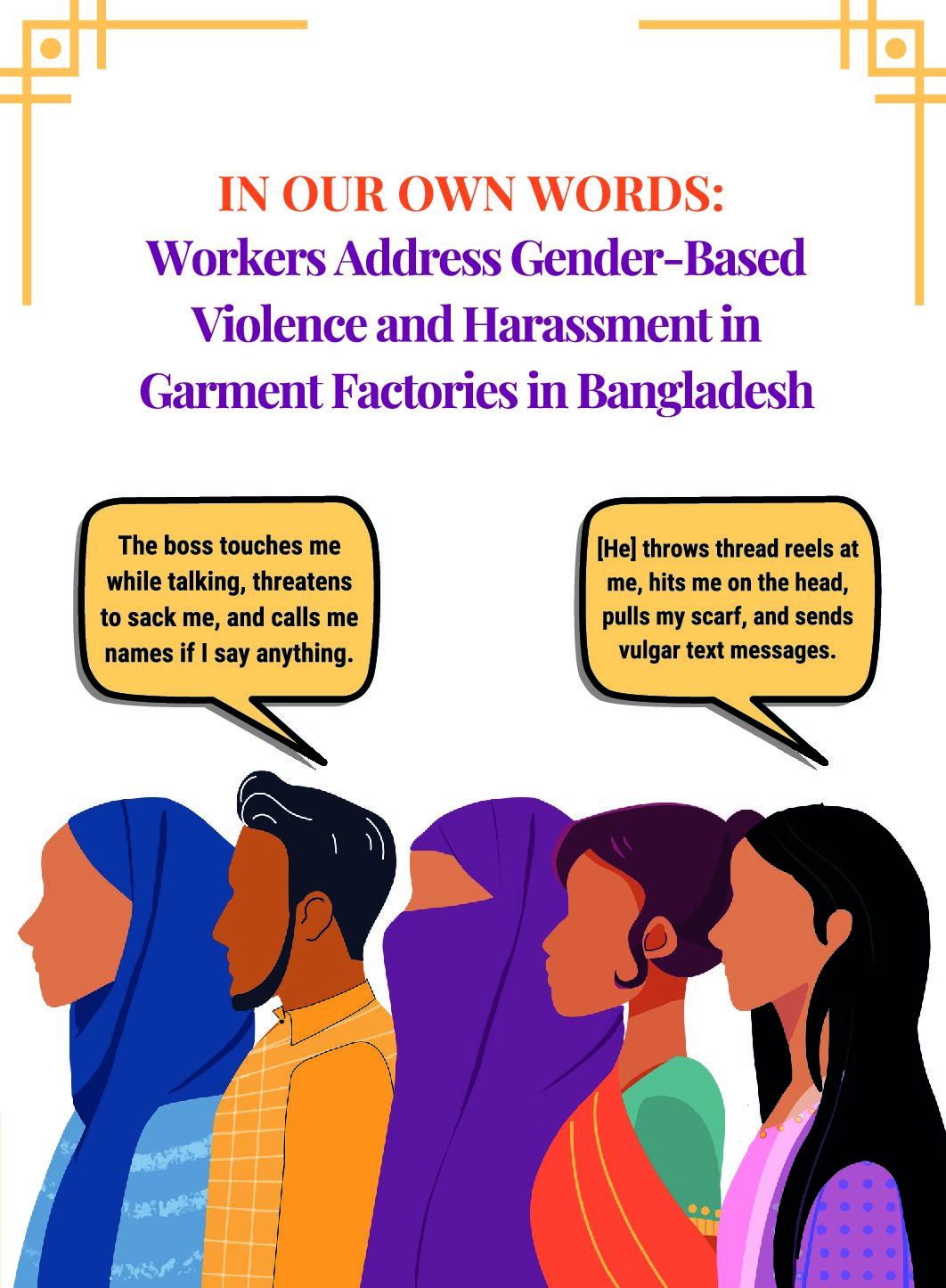
In Bangladesh, 80 percent of women garment workers surveyed in 2019 reported they had experienced or witnessed sexual harassment, molestation or assault, endured extreme verbal abuse or witnessed a factory manager or supervisor abuse and harass other women in the...